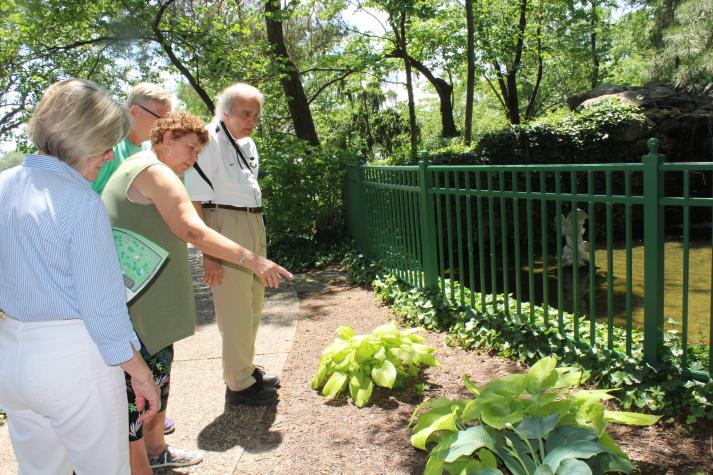

Extension Master Gardener program turns 50
COLUMBIA, Mo. – 2023 marks the 50th anniversary of the first Extension Master Gardener program at Washington State University. What began with 300 volunteers in Washington state has grown to more than 84,000 volunteers across the country, said University of Missouri Extension horticulturist and state Master Gardener coordinator David Trinklein.To commemorate the event, March 20-26 of this year has been designated National Extension…
Neighborhood Leadership Academy awards 20 mini-grants
ST. LOUIS, Mo. – The Neighborhood Leadership Academy has awarded 20 mini-grants totaling $46,805 to groups across Missouri. The grants, ranging from $380 to $2,500, support neighborhood initiatives including community gardens in schools and parks, neighborhood gatherings to build community and programs to improve the mental and physical health of neighborhood residents.
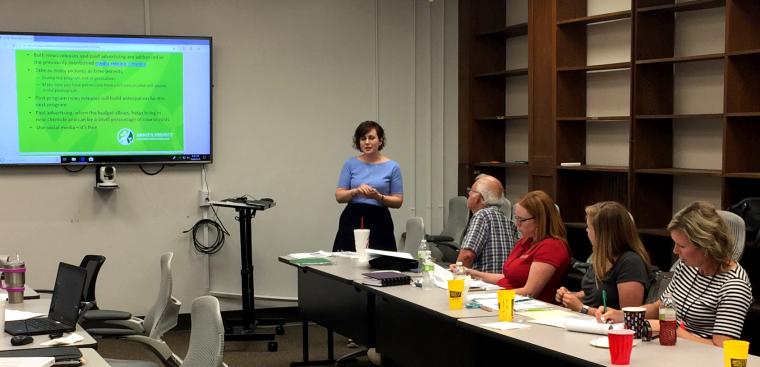
MU joins celebration of Annie's Project
COLUMBIA, Mo. – University of Missouri Extension is celebrating the 20th year of Annie’s Project, a national nonprofit to educate and empower women in agriculture.
Be ready to manage spring flush
COLUMBIA, Mo. – Get a head start on pastures for the year with good management of spring flush, says University of Missouri Extension state forage specialist Harley Naumann.Early decisions determine pasture health for the rest of the season, Naumann says.
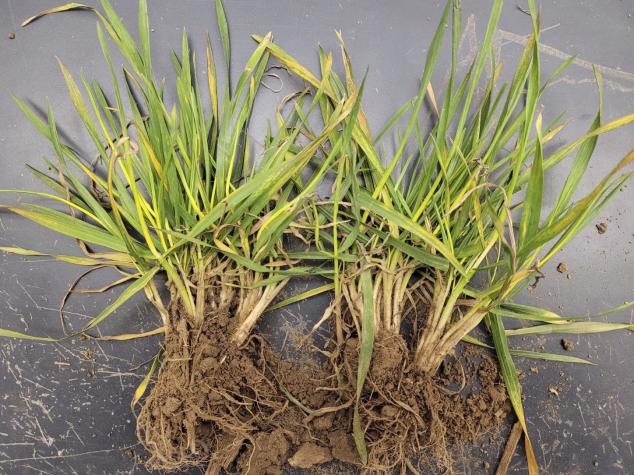
MU Plant Diagnostic Clinic offers free wheat virus tests
COLUMBIA, Mo. – The University of Missouri Plant Diagnostic Clinic will offer free screening for five wheat viruses this spring. A partnership of MU Extension’s Integrated Pest Management and Field Crop Pathology programs allows the clinic to waive the usual fee of $65 per sample.
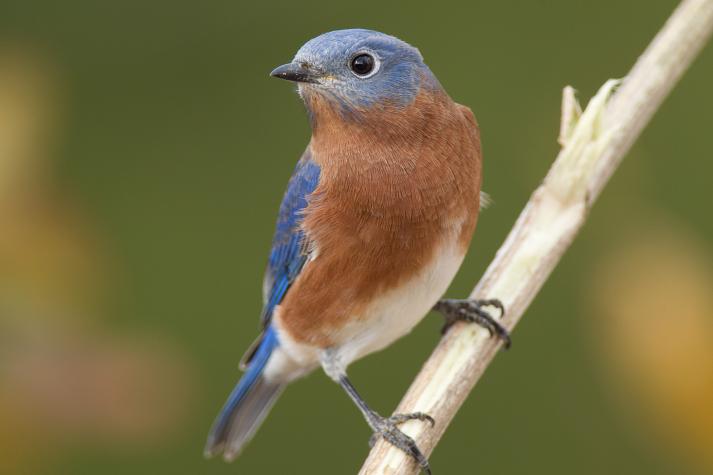
Now is time to enjoy wildlife and plan to improve habitat
COLUMBIA, Mo. – Spring is just around the corner and, with the final doldrums of winter, many Missouri wildlife species are showing an abundance of activity, says University of Missouri Extension state wildlife and fisheries specialist Bob Pierce.“This time of year provides many opportunities for conducting management practices on your property and also for getting outdoors and observing wildlife,” Pierce says.

Pansy: The smiley face flower
COLUMBIA, Mo. – “If ever there was a flower that brings a smile to people’s faces, it has to be pansy,” said University of Missouri Extension horticulturist David Trinklein.This delightful, cool-loving garden flower bears blotched petals that resemble a face smiling back at those who admire it. Midwesterners enjoy pansy’s unique palette of colors and delicate fragrance in spring and fall, Trinklein said.

Keep your eyes peeled for colorful St. Patrick's Day spuds
COLUMBIA, Mo. – It’s no blarney, potatoes are a staple for St. Patrick’s Day meals, along with corned beef, cabbage and soda bread.
MU experts offer HACCP training for food processors
COLUMBIA, Mo. – University of Missouri will hold food safety training for food processors March 29-31 on the MU campus in Columbia.Lakshmikantha “Kantha” Channaiah, MU Extension state specialist in food processing, and Andrew Clarke, MU Food Science program coordinator, will lead the Hazard Analysis and Critical Control Points (HACCP) training.
MU Extension Feedlot School set for March 22-23, Kirksville
Missouri cattle producers: Attend the Feedlot School in Kirksville, March 22-23, to learn about cattle nutrition, health management, and economics.

Survey to help guide state broadband efforts
COLUMBIA, Mo. – To guide the state’s internet expansion and training efforts, the Missouri Office of Broadband Development and University of Missouri Extension are conducting a brief online survey on household internet access and use.The anonymous survey, which takes about six minutes to complete, is at muext.us/MissouriInternetSurvey.
Registration open for fescue workshop
MOUNT VERNON, Mo. – Registration remains open for the March 23 Alliance for Grassland Renewal workshop at the University of Missouri Southwest Research Center in Mount Vernon.The one-day workshop brings nationally known experts on toxic tall fescue to Missouri. They will tell how to renovate toxic tall fescue pastures and integrate novel fescue varieties into grazing systems, says Gene Schmitz, MU Extension field specialist in…

Sowing the seeds to grow
Kahlil Gibran once shared, “Education sows not seeds in you, but makes your seeds grow.” The love of agriculture was planted in 4-H alumni and Mizzou freshman Emma Bauer at an early age on her farm in St. Charles, Missouri. In between Emma’s 4-H paths of growing vegetables in her garden and caring for her chickens, Emma nurtured dreams of studying Animal Science with the goal of becoming an animal nutritionist.
MU Grape and Wine Institute expands as interest in winemaking grows
COLUMBIA, Mo. – Interest in Missouri winemaking exploded during the COVID-19 pandemic, and the University of Missouri Grape and Wine Institute (GWI) has responded to meet the demand.
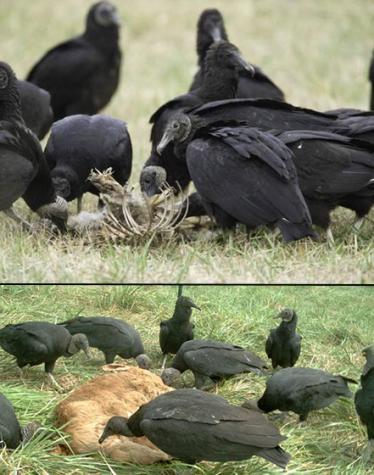
MU Extension guide has tips on controlling black vulture damage
COLUMBIA, Mo. – Missouri’s growing population of black vultures has led to increasing attacks on vulnerable livestock. Black vultures often inflict damage to the eyes and tongues of young livestock, kill and feed on domestic fowl and scar animals that survive.

Show-Me MO Success podcast: Setting your roots in business
COLUMBIA, Mo. – The Missouri Small Business Development Centers offer personalized and extensive services from knowledgeable and helpful professionals. In the latest episode of “Show-Me MO Success,” the University of Missouri’s Business and Community Extension podcast, listeners hear an example of how a Columbia business is working with the SBDC to develop and grow.
Veterinary prescriptions required for antibiotics in the coming months
Starting June 11, 2023, certain livestock antibiotics will require a veterinary prescription, ending over-the-counter sales. Plan ahead with a vet.
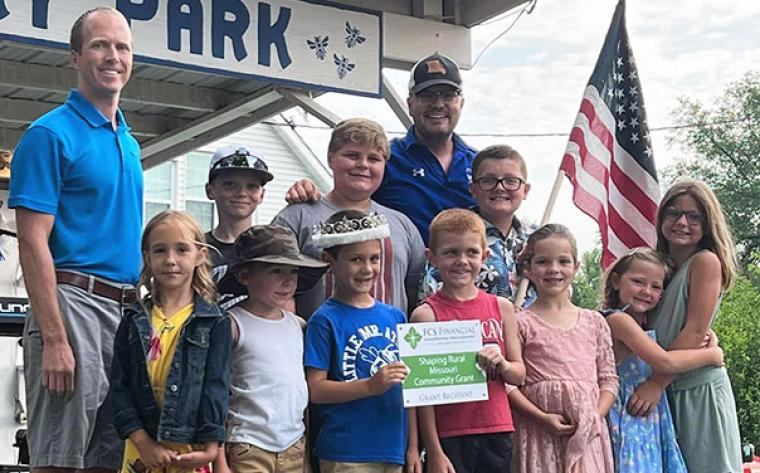
Small-town Missouri 4-H Club grows to more than 100 members
A small-town Missouri 4-H club has grown to over 100 members, offering youth development, leadership opportunities, and community engagement.
Business & Communities professionals recognized at annual awards dinner
Members of MU Extension Business & Communities programs were recognized Jan. 25 during an annual professional development conference for their accomplishments in the past year. We invite you to celebrate the accomplishments from around the state.Business & Communities awards and recipientsBusiness & Communities Catalyst: Recognize B&C team members who responded to a significant need seen in the community.

4-H alum shares exchange trip experiences
Missouri 4-H alum Heather Vaughn sent this account of her 2019 4-H exchange trip to Costa Rica.

Show-Me MO Success podcast: Empowering women in politics
COLUMBIA, Mo. – Closing the gender gap in civic representation is the focus of the latest episode of “Show-Me MO Success,” a podcast from University of Missouri Business and Community Extension.

Cyclamen: Hearts and Flowers
COLUMBIA, Mo. – The gift of hearts and flowers symbolizes the heartfelt admiration of a loved one through the sentiment of flowers. A houseplant that displays both hearts and flowers is cyclamen, said University of Missouri Extension horticulturist David Trinklein.

Missouri 4-H'ers compete at 2023 Western National Roundup
COLUMBIA, Mo. – Eight Missouri 4-H members competed in January at the 2023 Western National Roundup, an annual event held in tandem with the Western National Stock Show in Denver. FFA and 4-H members from 27 states competed in various categories and project areas during the four-day event.

Eggs still offer good nutritional value amid high prices
Eggs continue to provide excellent nutritional value despite rising prices, making them a smart choice for health-conscious consumers.
MU Graves-Chapple Center to add building
ROCK PORT, Mo. – For more than 30 years, the University of Missouri Graves-Chapple Extension and Education Center near Rock Port has provided information to help growers increase their profitability and continue to be good stewards of their land and the environment.
